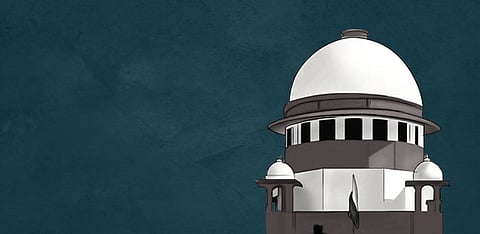

The Supreme Court has reserved its judgment in petitions seeking an independent mechanism to appoint Election Commissioners, but only after it took apart the procedure the government currently follows.
—–
THE placing of the file on the appointment of Election Commissioner A.K. Goel at the Supreme Court on Thursday was met with a barrage of questions about the "tearing urgency" with which the Union Government had approved Goel's appointment last week. The Union Government was also inquired about the criteria it follows to select a candidate for the post of Election Commissioner.
The Supreme Court on Wednesday had issued a direction to the Union Government to produce the original file on the appointment to acquire a comprehensive view of the procedure the Union Government applies while selecting the names of Election Commissioners to recommend to the President for appointment, and to ensure there was no subterfuge involved.
On Thursday, a Constitution bench led by Justice K.M. Joseph and comprising Justices Ajay Rastogi, Aniruddha Bose, Hrishikesh Roy and C.T. Ravikumar reserved its judgment after hearing for three days a batch of petitions seeking for the constitution of a neutral selection body for the appointment of Election Commissioners. The said petitions were filed by advocate Anoop Baranwal and the non-government organisation Association for Democratic Reforms, among others in 2021.
Upon going through the file placed before the bench, Justice Rastogi remarked, "Same day process, same day clearance, same day appointment. What kind of evaluation was done by the government?"
Justice Joseph stated that Goel might have "brilliant academic record, but it's not just about brilliance. The question is: you may have a man, but is he docile?" "For this, there's no litmus test", the Attorney General for India ('AGI'), R. Venkataramani replied.
The bench made repeated inquiries to the Union Government about the process and the criteria it follows for shortlisting Election Commissioners to recommend to the President.
A note submitted by the Union Government and seen by The Leaflet, states that the Union Ministry of Law and Justice, after considering the database of the Department of Personnel & Training, recommends a list of names for consideration by the Prime Minister first, and then the President.
However, the note placed before the Supreme Court is a confirmation of the charge that the appointment process of Goel moved with unusual speed. It notes that Goel's request for voluntary retirement was forwarded to the Chief Secretary of Punjab, the cadre of which state he was part of, on November 18, and on the same day, the Punjab government accepted the voluntary retirement while also waiving off the requirement for a mandatory three month notice. By November 19, his file had been approved by both the Prime Minister and the President, and a gazette notification was issued in this regard.
"Does it happen like this normally?" Justice Bose asked the AGI. The AGI replied, "No. No. This is just a coincidence."
On the question of criteria, the AGI contended that the Union Government considers the seniority of potential candidates and the length of tenure they may serve once appointed, among other things which the AGI did not specify. At a previous instance during the hearing, the AGI had contended, "In certain areas of institutional governance, some degree of informality is always necessary", defending the lack of statutory procedure for appointments.
Senior Advocate Gopal Sankaranarayanan, appearing for one of the petitioners, claimed, "Until this file got shown today, we had no idea how Election Commissioners were appointed. Even now, several questions were put by this bench to the AGI and there's no answer about whether any process has been laid down, except to say that it is based on convention."
In the previous days of hearing, the bench had questioned the Union Government on the appointment of persons who "they know will not be able to have six-year terms."
On Thursday, the Supreme Court remarked that it appeared to the bench that "only persons on the verge of retirement who will definitely not get the term … are carefully picked. Is that a rational criteria?"
"You're violating Section 6 [of the Election Commission (Conditions Of Service Of Election Commissioners And Transaction Of Business) Act, 1991], we are telling you openly. [Election Commissioners] are expected to get six years of tenure", the bench said. Section 6 states that the Chief Election Commissioner and an Election Commissioner shall be deemed to demit their office "only if" they have completed the term of office specified in Section 4 (which prescribes a tenure of six years) of the Act or has attained the age of sixty-five years.